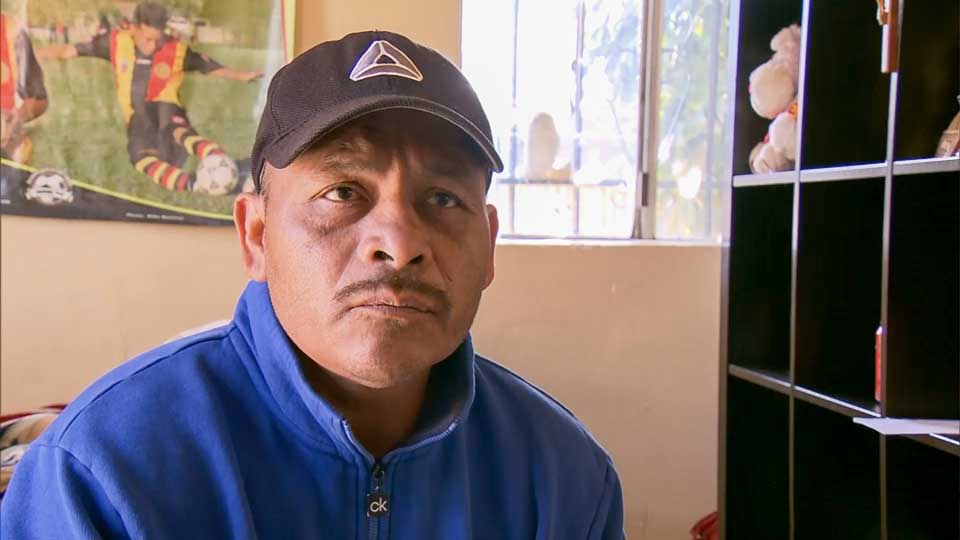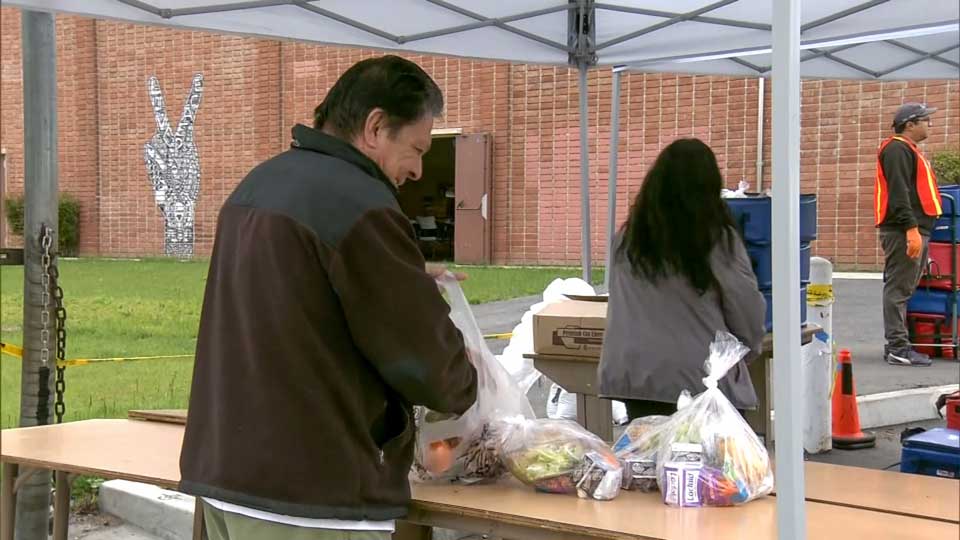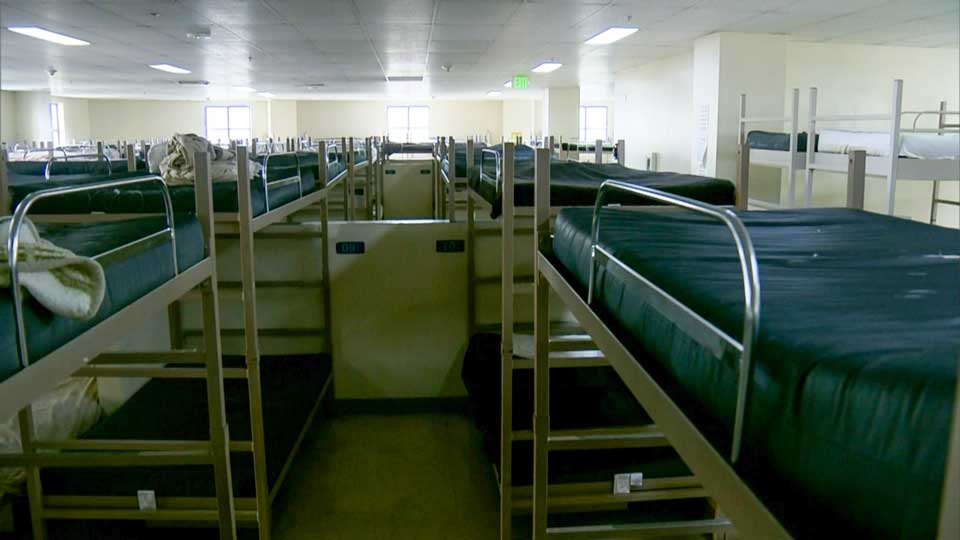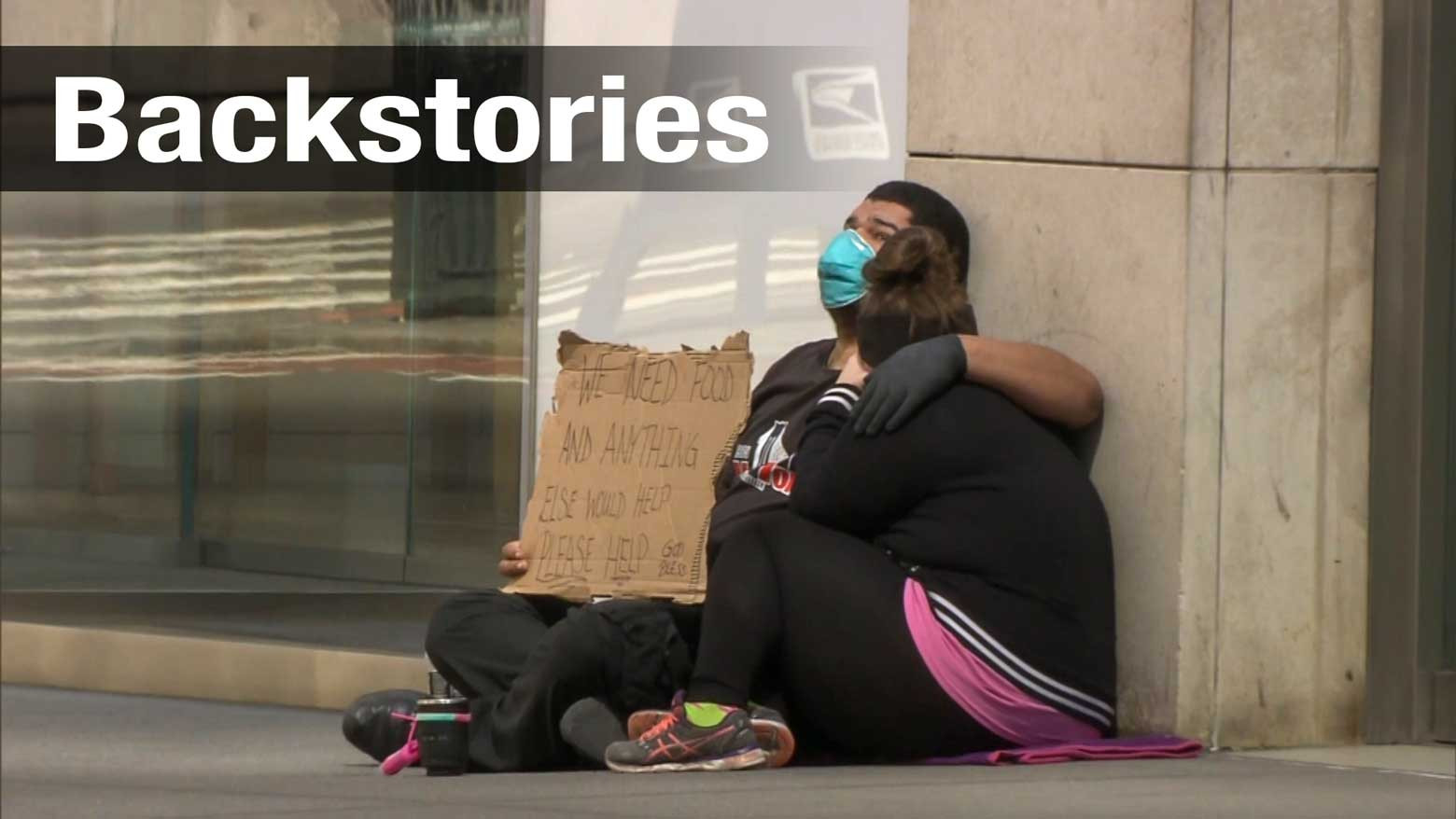California's shelter-in-place measures, requiring schools and most businesses to close, and prohibiting residents from leaving their homes except on essential business, have taken a heavy economic toll on low-income residents.
Bruno Rios, a resident of Compton, a city in the greater Los Angeles area, worked as a welder until the company he worked for was abruptly shut down when the shelter-in-place order went into effect on March 19.
"All the companies are closing. There is no work right now. I'm calling the work agencies to find whatever kind of work," he says.
Schools in Los Angeles, which usually provide free meals during the school day to children from low-income families, have been passing out bags of food to parents in the morning to help them feed themselves and their families. Rios, who has three sons aged 18, 17 and 14, has been relying on food provided by a neighborhood school to fill the gap of his lost wages, and also takes work fixing acquaintances' cars when he can get it.
"I go to get food from the school, because it's a lot of help. A lot of help," he says.
Even when he has money to buy food, he's often unable to find basic necessities on the shelves, he says, because those with money are stocking up.

Clair Brown, a professor of economics and director of the Center for Work, Technology, and Society at the University of California, Berkeley, says the government introduced stimulus packages to help those who have lost their jobs because of the pandemic, but the system was quickly overwhelmed and many people have been unable to claim their benefits.
"We had literally millions of people thrown out of work just overnight. So they started, of course, applying for unemployment insurance, which is our main system of how we care for the unemployed. And then the tragedies really began," she says. "When all of a sudden three million people in one week applied for unemployment insurance and then the next week six million people applied, the antiquated state systems were overloaded."
The majority of unemployed people in the country receive no government benefits at all, she says.
"The number of people who collect unemployment insurance is a very small fraction of the total number of unemployed. Most recently, it was less than 30 percent of the people unemployed (that) actually received any unemployment insurance. And those who do receive it only receive about a third of their pay," she says.

And for Americans experiencing homelessness, the situation is even worse. The crumbling economy leaves little hope of finding work and getting back on their feet, and staying outdoors or in crowded shelters leaves them especially vulnerable to contracting the virus. Several homeless shelters in California have reported outbreaks of the virus, with some closing altogether in an effort to stop the spread.
Antwone Sanford is the director of outreach and emergency services for the Los Angeles Mission, which typically provides shelter for 143 people in LA's Skid Row, the district with the highest homeless population.
He says the shelter has had to halve the number of beds it provides, even as the number of people living on the street grows. The Los Angeles Mission hasn't had any cases of the virus yet, he said, but the shelter has had to take extreme steps to protect residents and staff.
"Nobody can come on the property without having their temperature checked, having their hands washed and having a mask on," he says. "We had to cut some services because we know we can't gather like we normally do, but we still open up services to provide basic necessities for the homeless."

In early April, authorities confirmed the first death from the coronavirus in Skid Row. Sanford warned that the virus may be more widespread in the area than the public or the city's health authorities realize.
"We don't know how many people out there who was just living in tents, who haven't went to the doctor, who might have it, might have the symptoms," he says.

